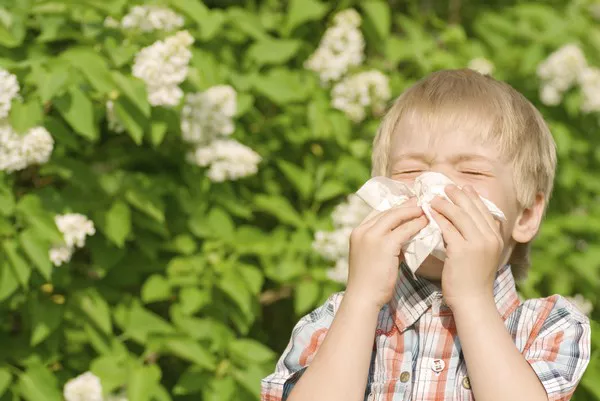Pollen allergies, also known as hay fever or seasonal allergic rhinitis, affect millions of people worldwide. These allergies occur when the immune system overreacts to pollen grains from plants, trees, and grasses. The result can be a range of uncomfortable symptoms that affect the eyes, nose, throat, and sometimes the skin. This article provides a detailed guide on treating pollen allergies, from understanding the causes to exploring various treatment options.
Understanding Pollen Allergies
Pollen allergies happen when your immune system mistakenly identifies pollen as a harmful substance. This leads to the production of immunoglobulin E (IgE) antibodies, which trigger the release of histamine and other chemicals that cause allergy symptoms.
Common Symptoms of Pollen Allergies
Pollen allergy symptoms can vary in severity and may include:
Sneezing: Repeated, forceful sneezes are a common symptom.
Runny or Stuffy Nose: Increased mucus production and nasal congestion.
Itchy or Watery Eyes: Red, itchy, and watery eyes are common.
Coughing: Post-nasal drip can lead to coughing.
Skin Rashes: Some people may develop skin rashes or hives.
Diagnosis of Pollen Allergies
Diagnosing pollen allergies typically involves a combination of medical history, physical examination, and allergy testing:
Medical History: A healthcare provider will ask about symptoms, their severity, and any patterns or triggers.
Physical Examination: A physical examination may reveal signs of allergic reactions, such as nasal congestion or eye redness.
Allergy Testing: Skin prick tests or blood tests can help identify specific allergens causing the reaction.
Treatment Options for Pollen Allergies
Managing pollen allergies involves a combination of avoidance, medication, and in some cases, immunotherapy:
Avoidance: The best approach is to avoid known allergens as much as possible. This may involve keeping windows closed during high pollen seasons, using air conditioning, and wearing sunglasses when outdoors.
Medications: Over-the-counter and prescription medications can help control allergy symptoms. Antihistamines, decongestants, and corticosteroids are commonly used to relieve sneezing, itching, and inflammation.
Immunotherapy: Also known as allergy shots, immunotherapy involves receiving injections of gradually increasing amounts of allergen to build tolerance over time.
Environmental Control: Using air purifiers, dehumidifiers, and allergen-proof bedding covers can help reduce exposure to allergens in the home.
Lifestyle Modifications: Regular exercise, a balanced diet, and stress reduction techniques can help support the immune system and may reduce the severity of allergy symptoms.
Natural Remedies and Complementary Therapies
While there is no cure for pollen allergies, some natural remedies and complementary therapies may help alleviate symptoms:
Butterbur: This herbal supplement has been shown to reduce allergy symptoms when taken regularly.
Quercetin: A natural antioxidant found in apples, onions, and berries, quercetin may help reduce histamine release.
Vitamin C: This vitamin may help strengthen the immune system and reduce the severity of allergy symptoms.
Acupuncture: Some studies suggest that acupuncture may help reduce allergy symptoms by调节 the body’s immune response.
The Role of Diet in Pollen Allergy Management
In addition to medical treatments, dietary changes can play a significant role in managing pollen allergies:
Anti-Inflammatory Foods: Foods rich in omega-3 fatty acids, such as fatty fish, walnuts, and flaxseeds, can help reduce inflammation in the body.
Vitamin-Rich Foods: Vitamins C and E, found in fruits and vegetables, can support the immune system and may help reduce the severity of allergy symptoms.
Hydration: Drinking plenty of water helps maintain overall health and can alleviate symptoms like a dry throat or nose.
The Impact of Pollen Allergies on Mental Health
The psychological impact of pollen allergies should not be underestimated. Chronic allergies can lead to:
Stress and Anxiety: The constant need to manage symptoms and avoid allergens can cause significant stress.
Mood Disorders: The disruption of daily routines and social activities can contribute to feelings of isolation and depression.
Cognitive Dysfunction: Allergic symptoms like fatigue and brain fog can affect concentration and memory.
Mental Health Support for Individuals with Pollen Allergies
Access to mental health support is an important aspect of comprehensive allergy care:
Counseling Services: Talking to a mental health professional can help individuals cope with the emotional challenges of living with allergies.
Support Groups: Joining a support group for individuals with allergies can provide a sense of community and shared understanding.
Mindfulness Practices: Techniques such as meditation and deep breathing can help manage stress and improve overall well-being.
Conclusion
Pollen allergies are a common and often distressing condition that can significantly impact an individual’s quality of life. By understanding the causes, recognizing the symptoms, and implementing effective management strategies, individuals can take proactive steps to manage their allergy and improve their well-being. Always consult with a healthcare professional for personalized advice and recommendations based on your specific needs and circumstances.
Related Topics:

